Welcome to the
WalkMe Help Center
Please log in to continue

Please log in to continue

The Custom Dashboards page allows users to create their own personalized dashboard. With this feature, users can add metric widgets from different systems to create unique insights dashboards. This allows users to tailor their dashboard to their specific needs and preferences.
The Custom Dashboards page is a valuable tool for those who want a more personalized and efficient way to monitor their metrics and gain insights.
Users can now create custom widgets for their dashboards. Users can decide exactly what should be shown in the custom widget allowing them to filter out unnecessary information and highlight only what's matter to them.
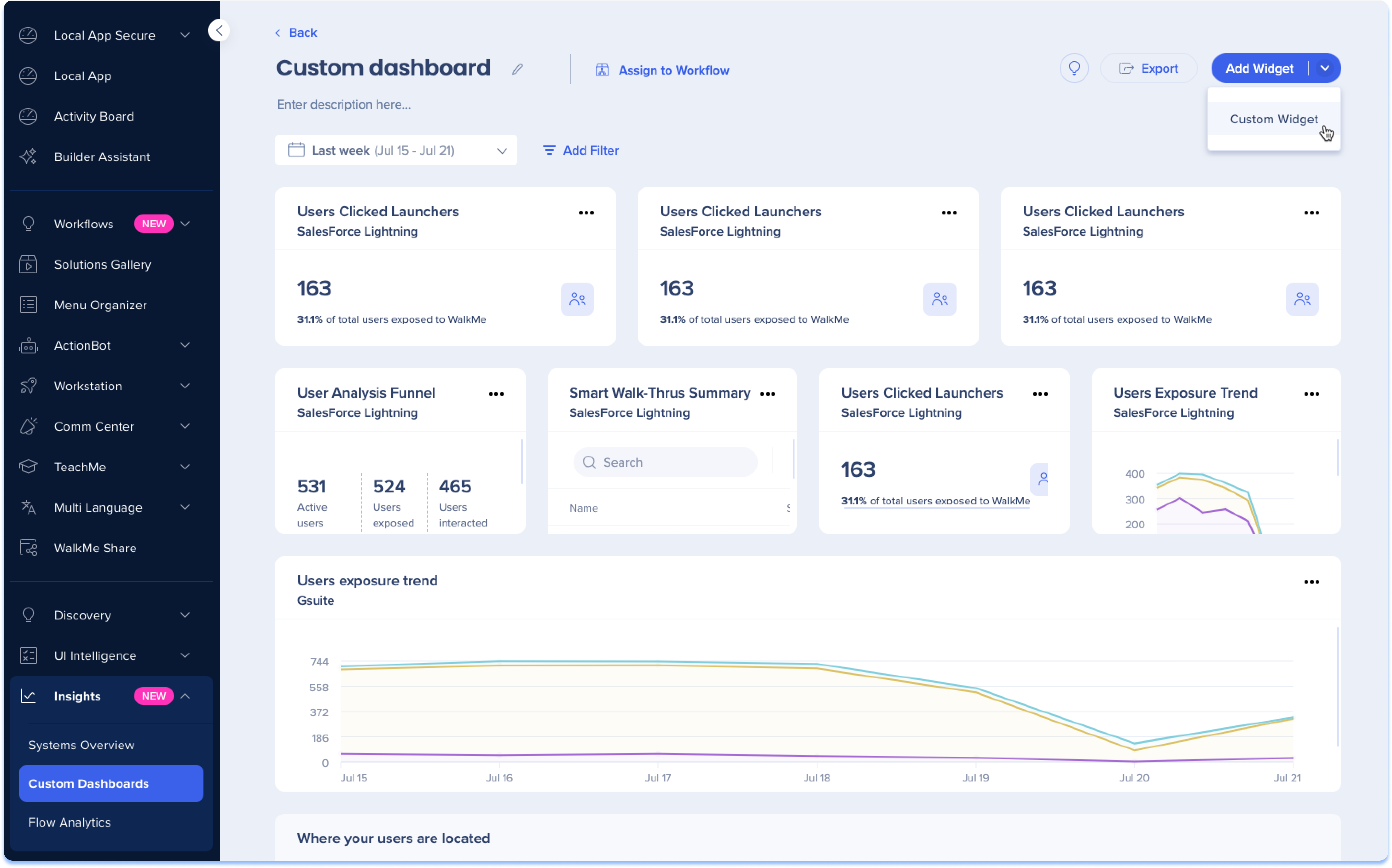
Access the My Dashboards page through the console under Insights > Custom Dashboards or by direct link:
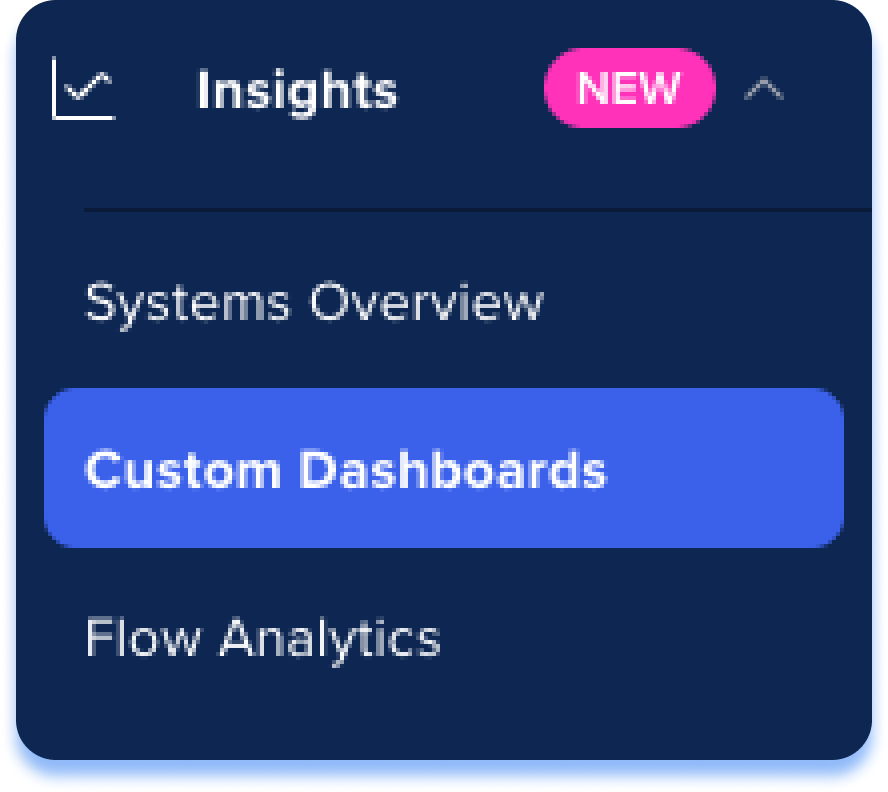
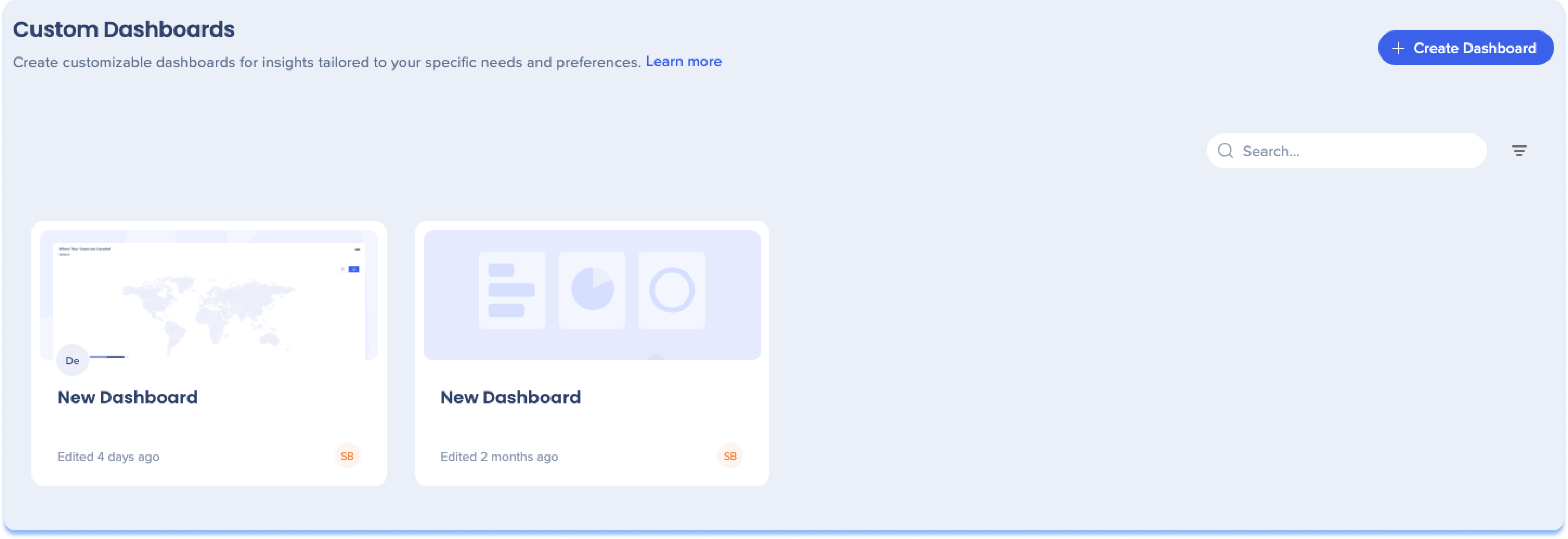
Click Add Widget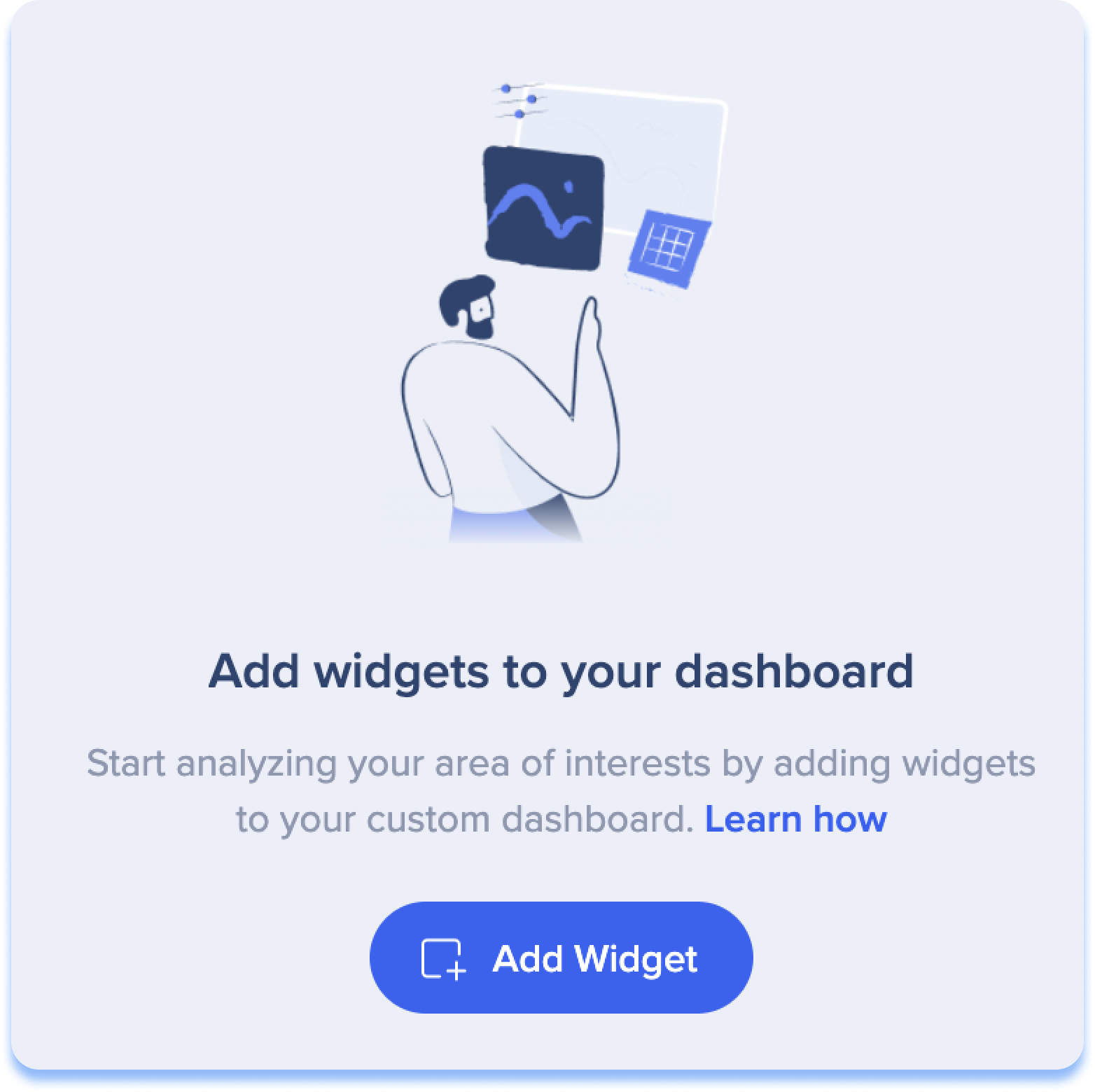
Select a widget from the widget gallery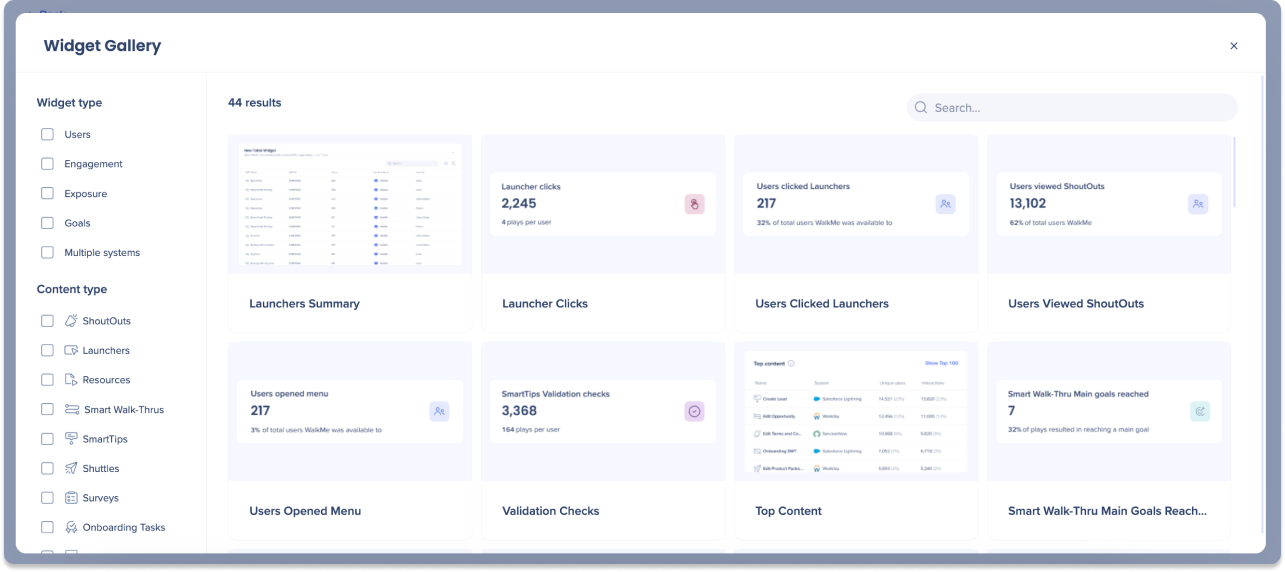
Optional: Enter a name for your widget
Optional: Enter a description for your widget
Select the system from which you wish to retrieve data for the widget
Click Add Widget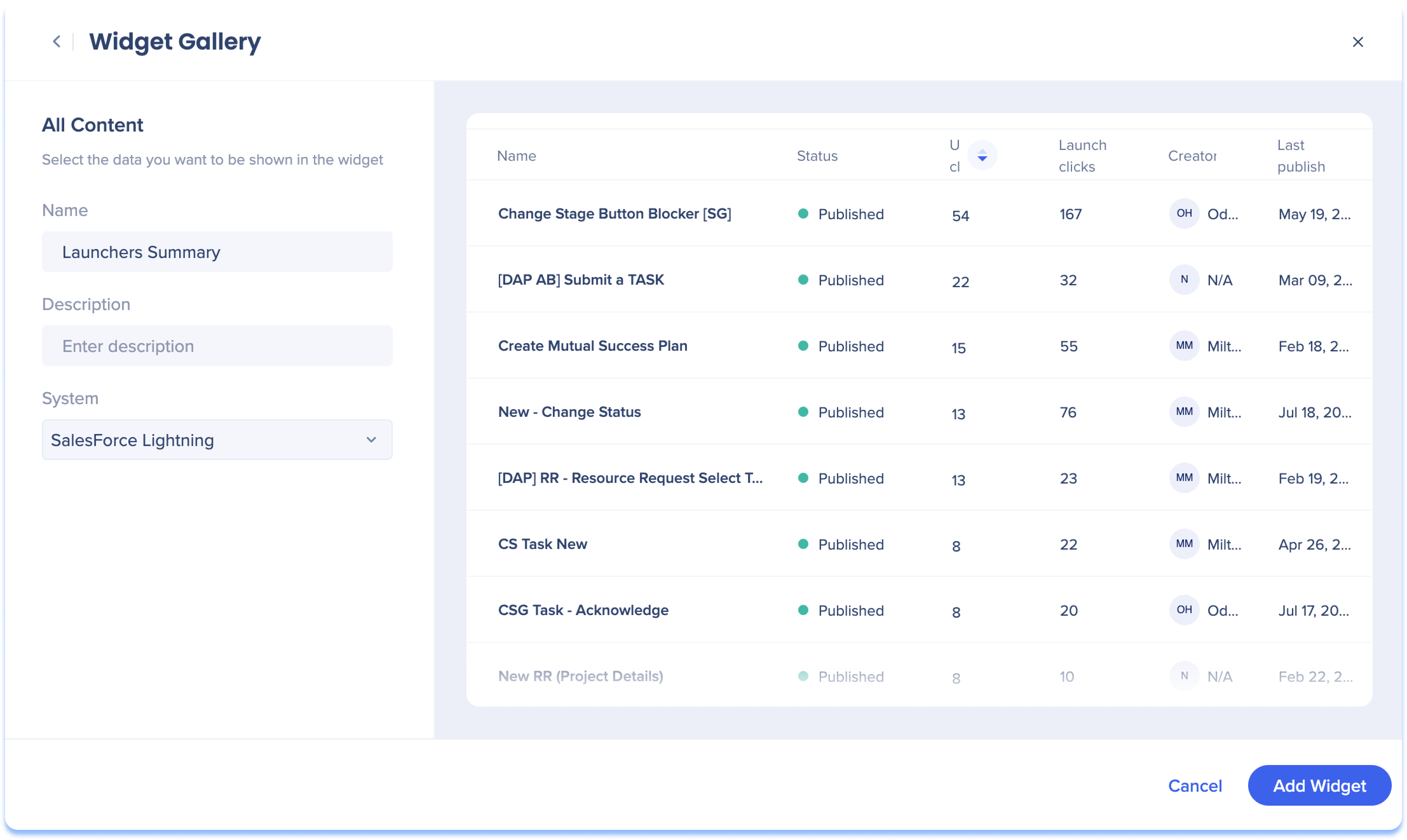
Use the dropdown to view data from the chosen date range.
Today: This filter shows data from the current day
Last week: This filter shows data from the previous week (mon-sun)
Last month: This filter shows data for the previous month
Last three months: This filter shows data for the last three months
Month: This filter shows data from the selected month and year
To use this filter, Last month or Last three months needs to be selected first
Quarter: This filter shows data from the selected quarter and year
To use this filter, Last month or Last three months needs to be selected first
Custom: This filter allows you to select a custom date range to view data
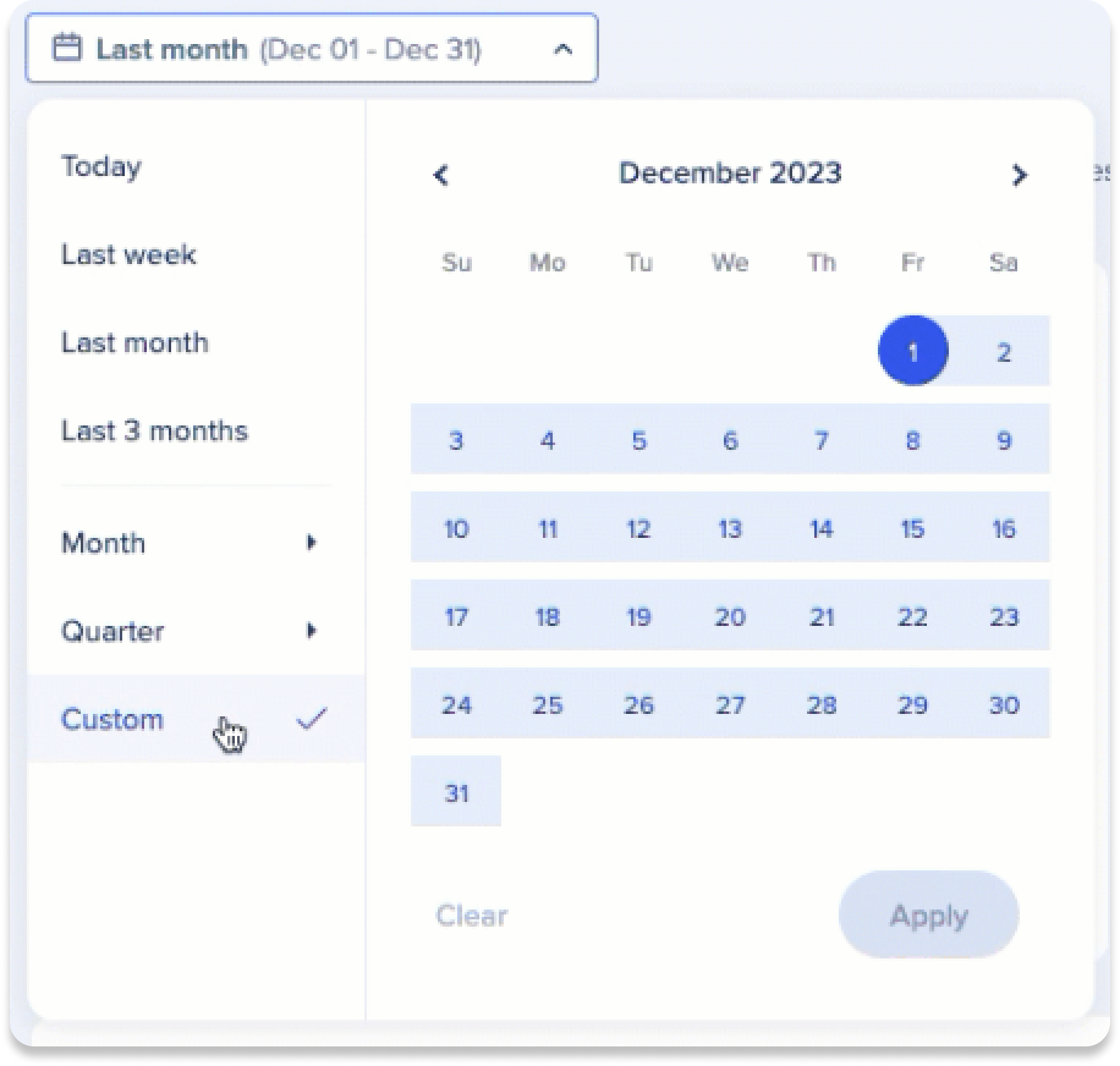
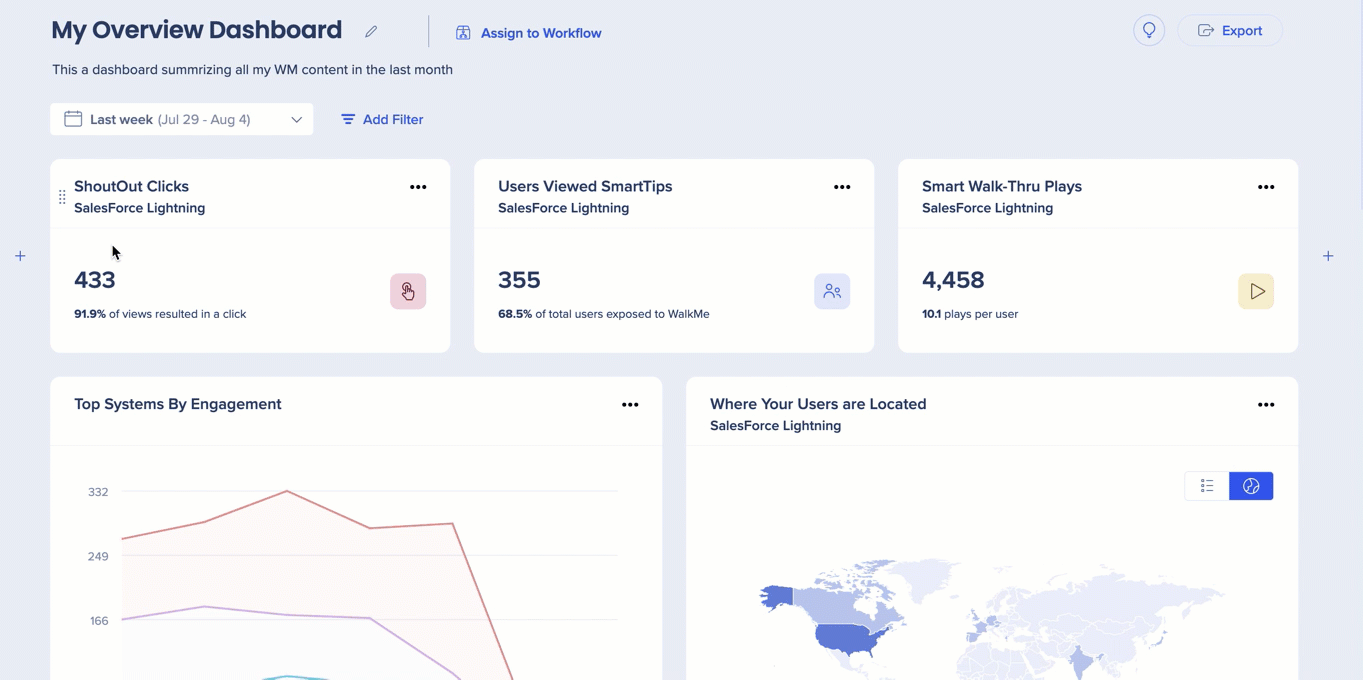
Click Assign to Workflow to assign a custom dashboard to appear in the Insights tab of a specific Workflow in the Workflows app. Learn more:
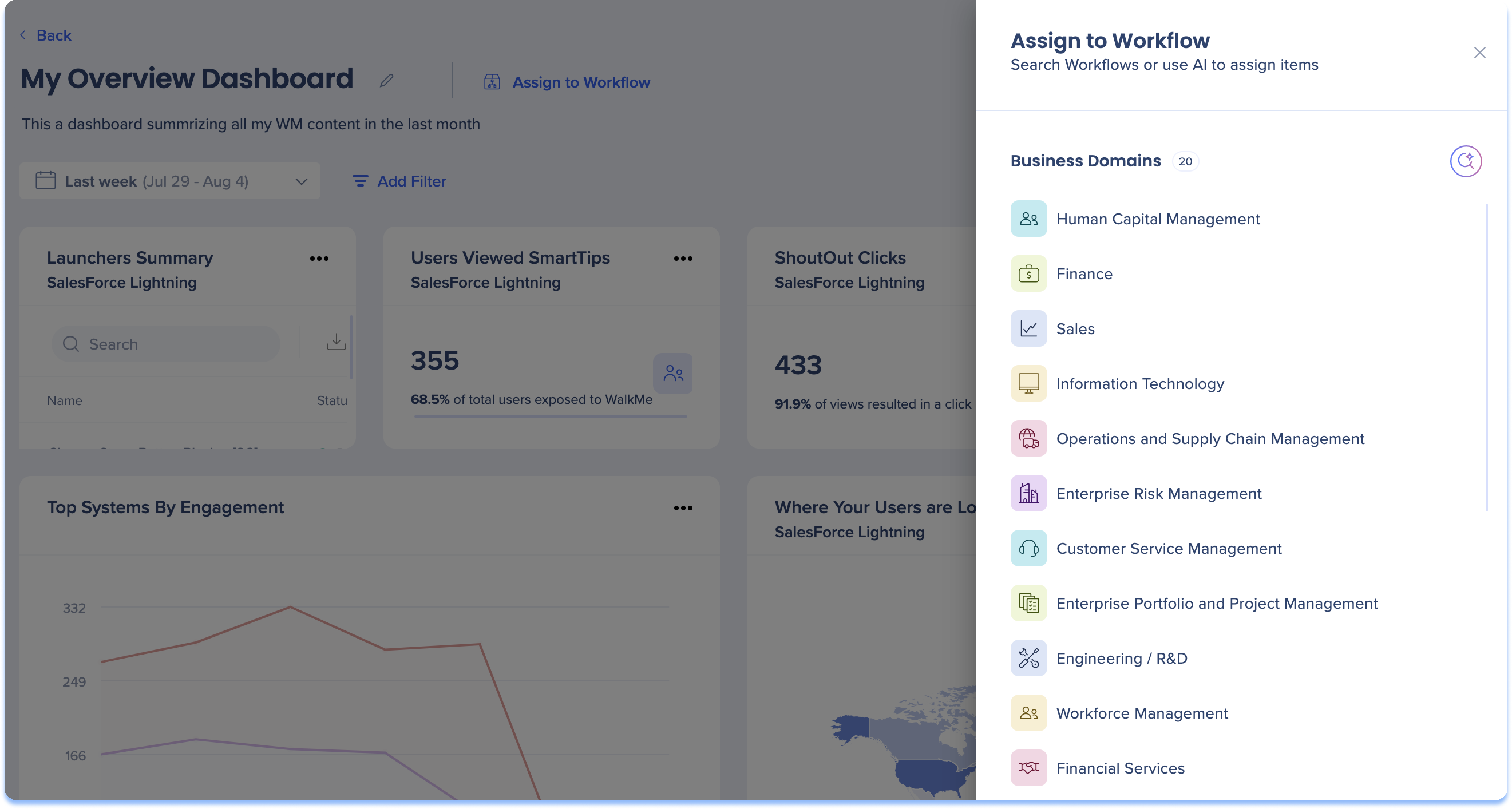
Quickly add widgets to your custom dashboard from system overview pages by hovering over them and clicking Add to Dashboard.
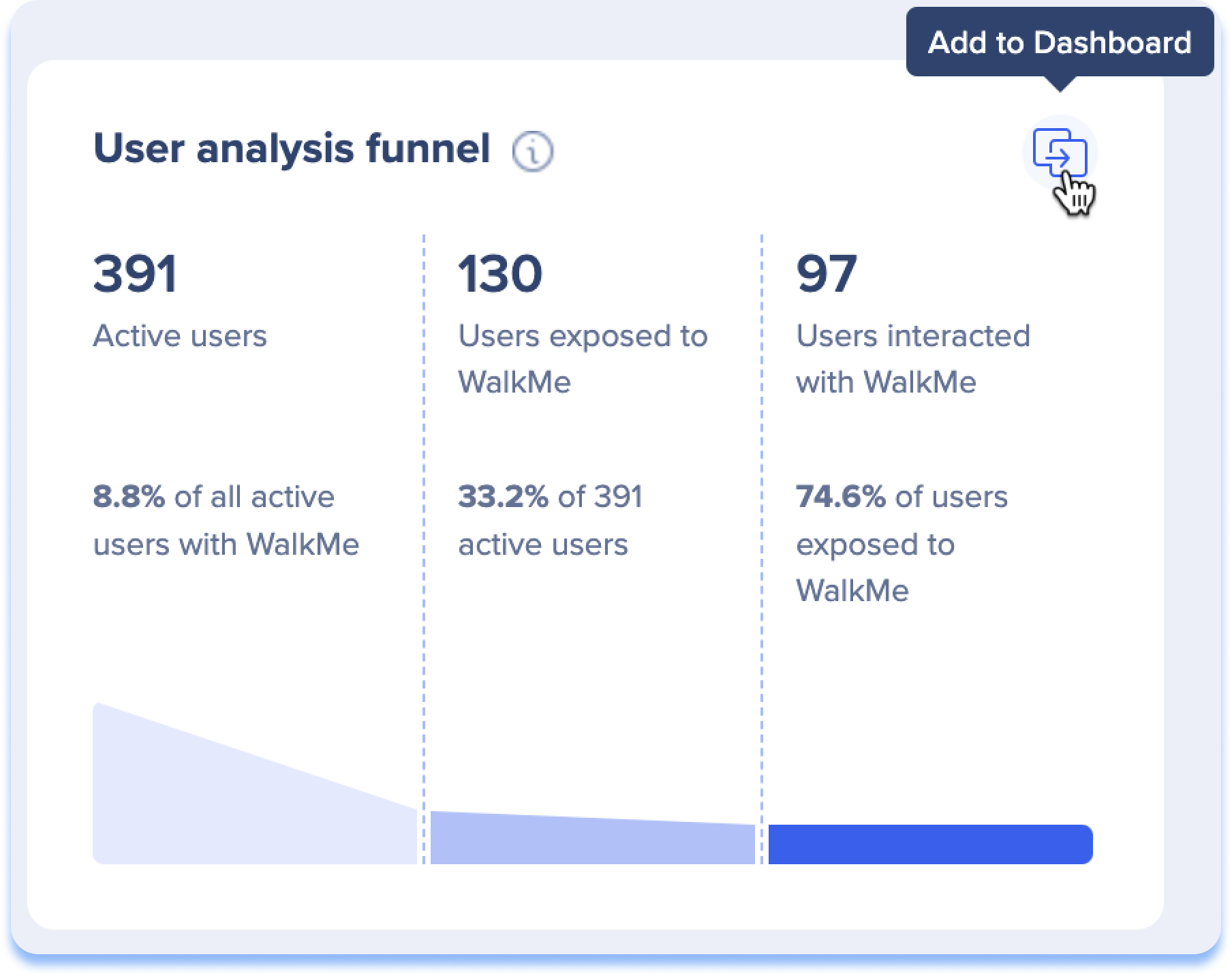
Click Add Filter to display a smaller part of the data set for the entire dashboard. Learn more.
The dropdown contains any previously saved filters
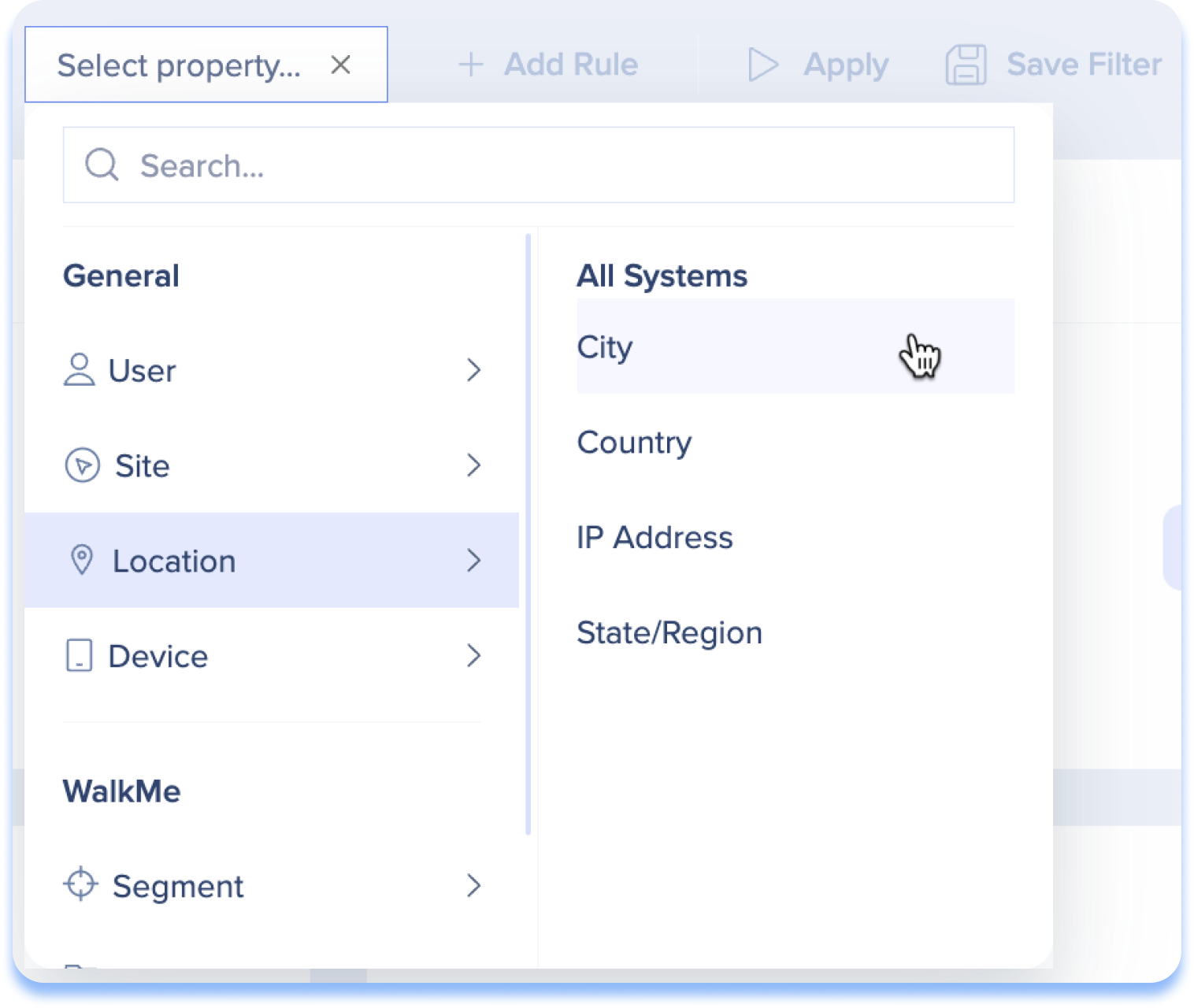
With custom widgets, you have the power to create your personalized data views tailored to your unique needs. They're located in the widget gallery of Custom Dashboards, enabling users to craft personalized data views.
Users can specify the system and data type (Elements/Content/Pages) they wish to display, along with the desired format. Display options include a singular metric widget, pie chart, or table. Additionally, the feature offers widget-level filtering for precise data display.
Click Add Widget![]()
Click Create Custom Widget![]()
Enter a name for your widget
Enter a description for your widget
Select a system from the system dropdown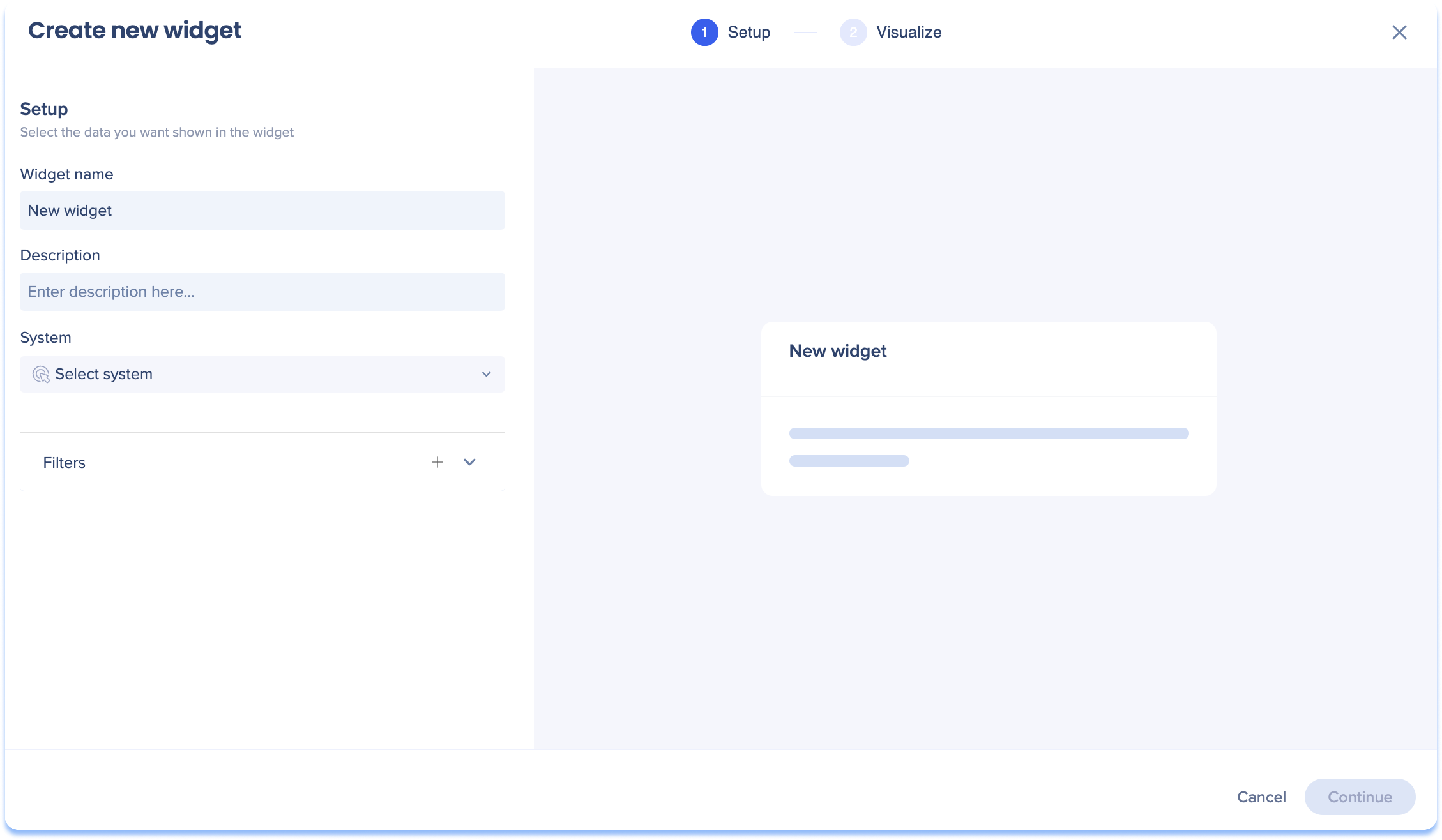
Select the data you want to show in the widget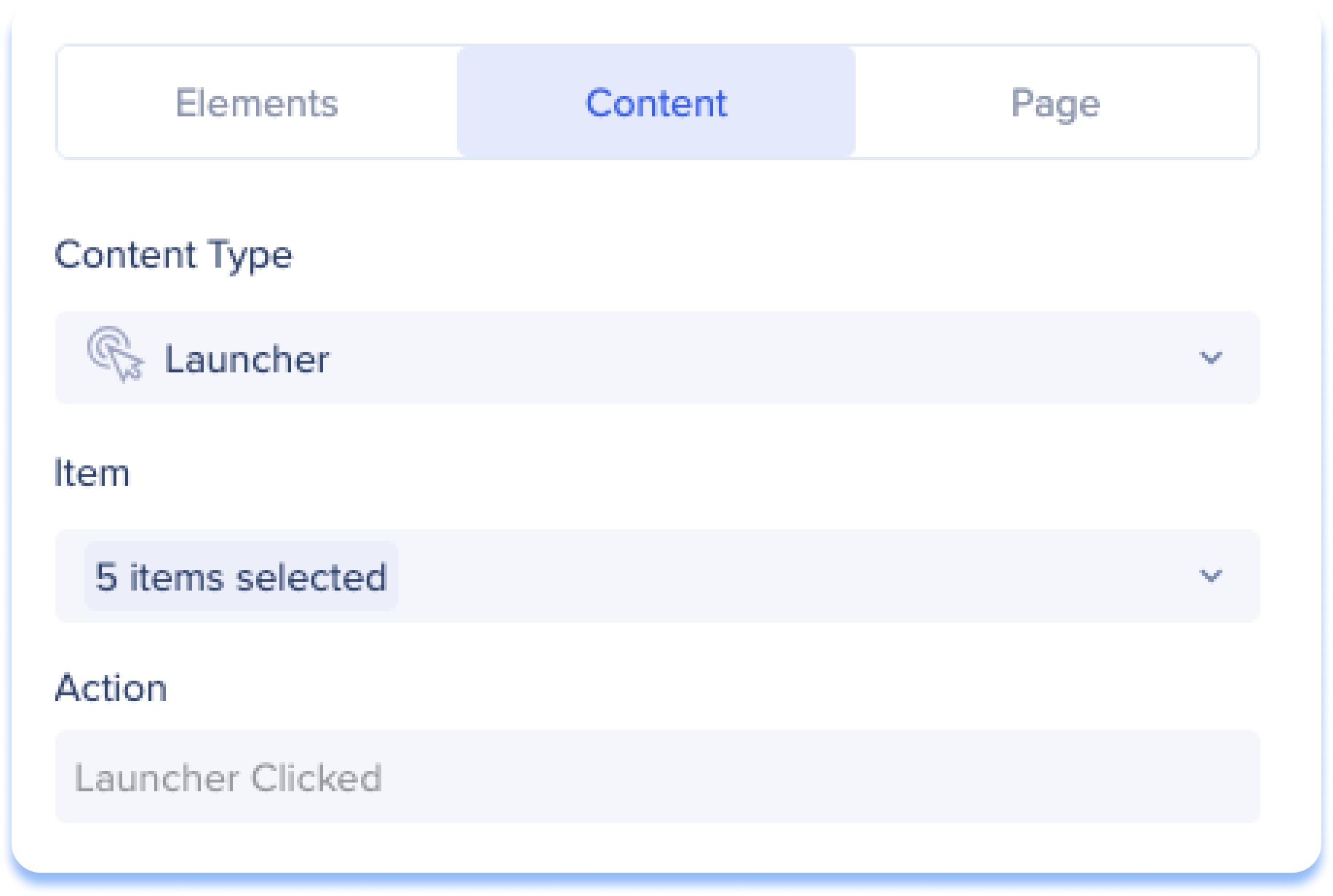
Element: Engaged elements that have been created from the Events page for this specific system (Tracked Events will be supported soon)
Select the elements from the Element dropdown
Content: WalkMe items created within the selected system
Select a content type from the Content type dropdown
Select specific WalkMe items within that content type from the Item dropdown
Page: Specific webpages to track user visits
Select a url from the list, any url, or type a new url in the search field
Optional: Click Filters to display a smaller part of the data set. Learn more.
The dropdown contains any previously saved filters
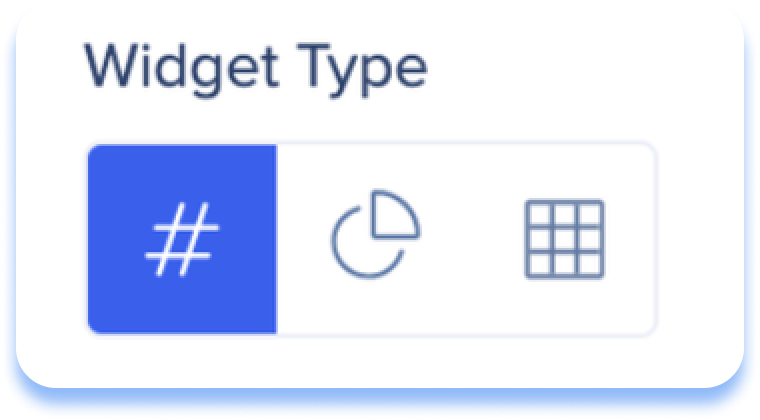
Choose the singular metric visualization method if you want to quickly display single metric as a number, making it easy to understand information on your chosen data type.
Select from the Measure by dropdown how you want to measure the data type (this is the number that will appear)
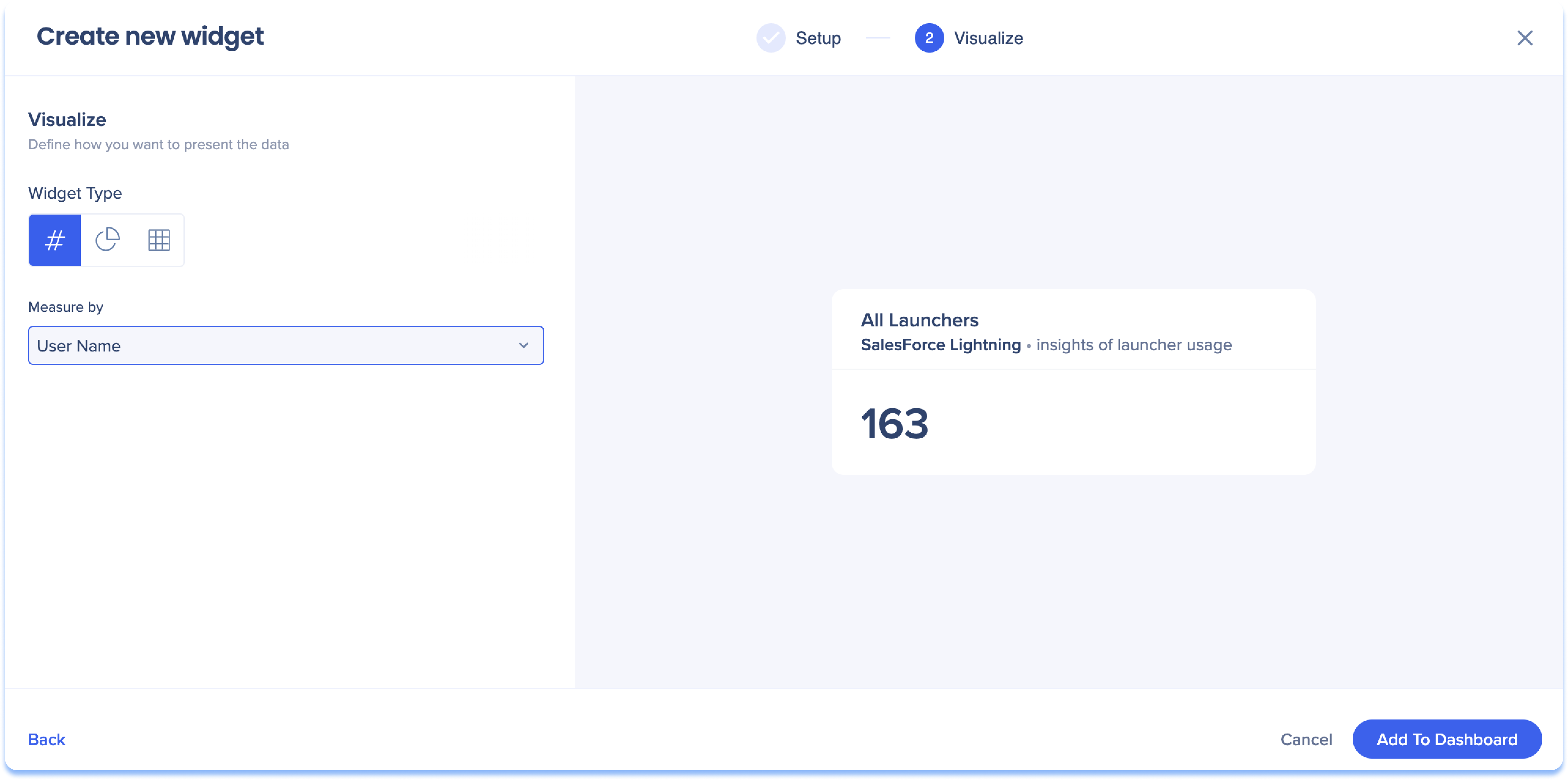
Setup
System chosen: SalesForce Lightning
Data type chosen: Content
Content type: Launcher
Item: All (meaning all launchers within the SalesForce Lightning system)
Action: Launcher Clicked
Visualize
Widget type: Singular Metric
Measure by: User Name
Interpretation
There were 163 unique users who clicked on a launcher from all of the available launchers in SalesForce Lightning.
Choose the pie chart visualization method to display a whole dataset divided into individual parts.
Select from the Show data as dropdown what the featured dataset will be in the chart (this will be the text)
Select from the Measure by dropdown how you want to measure the data type (the will be the numbers)
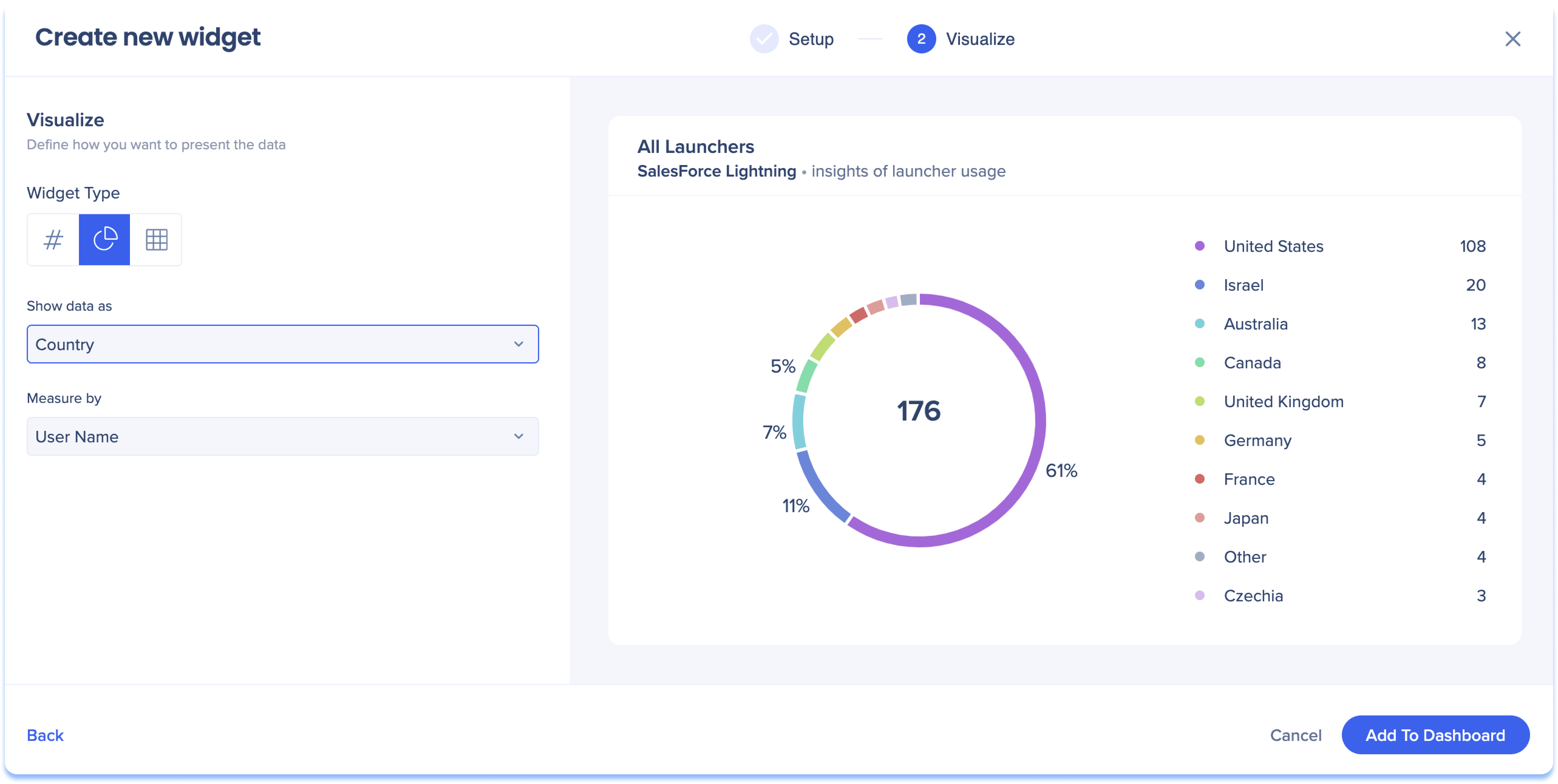
Setup
System chosen: SalesForce Lightning
Data type chosen: Content
Content type: Launcher
Item: All (meaning all launchers within the SalesForce Lightning system)
Action: Launcher Clicked
Visualize
Widget type: Pie Chart
Show data as: Country
Measure by: User Name
Interpretation
Displays the number of unique users per country that clicked on a launcher from all of the available launchers in SalesForce Lightning
There were 176 unique users from 10 different countries that clicked on a launcher
The majority of users were located in the United States
Choose the table visualization method if you want to display lots of your data in a detailed format, where you can select to data columns and display the data as either measures or dimensions.
Select dimension or measure for each data column to determine how the data is displayed in the table
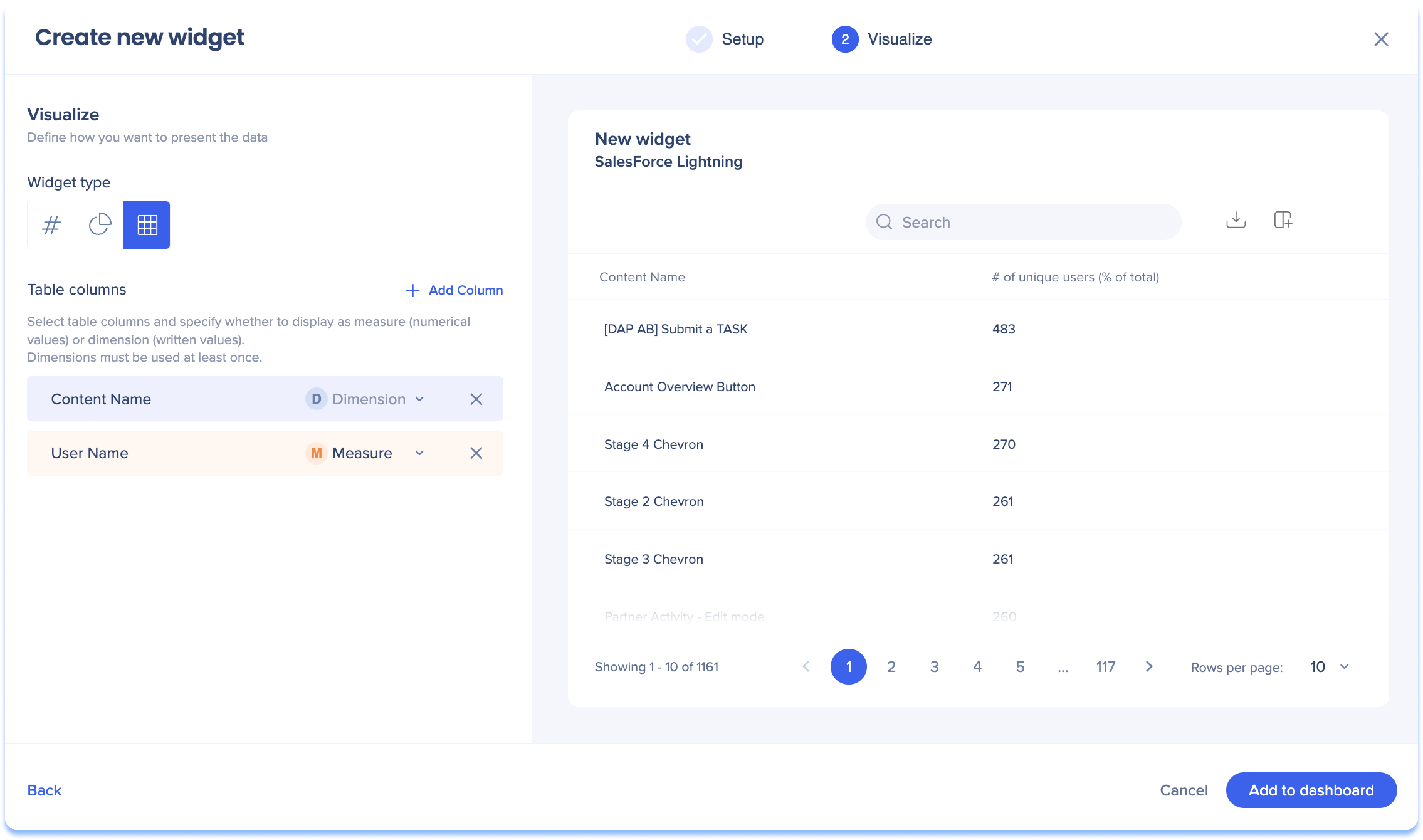
Setup
System chosen: SalesForce Lightning
Data type chosen: Content
Content type: Launcher
Item: All (meaning all launchers within the SalesForce Lightning system)
Action: Launcher Clicked
Visualize
Widget type: Table
Columns & values:
Content Name - Text
User Name - Number
Country - Number
Browser - Number
Interpretation for one launcher on the table
The Change Stage Button launcher was clicked by 54 unique users from 9 countries, all using the same browser type.
Custom Widget
A maximum of 100 custom dashboards can be created
Known Issues
Custom Widgets Show No Data (Desktop/Mobile Systems)
Bug Description: When users switch systems to a desktop/mobile system (previously known as Workstation) using the systems dropdown in the editor or console, they can inadvertently add a custom widget without selecting a specific system. This results in the widget being categorized under a "desktop/mobile system," which won't show data due to unsupported desktop/mobile data in custom widgets
Workaround: To successfully add a widget to a custom dashboard using desktop/mobile data, users should navigate to the system overview, select a desktop/mobile system, and use the Add to Dashboard button